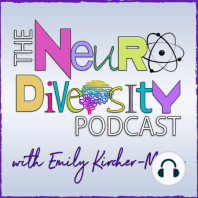42 min listen
Am I the Impostor Among Us?
ratings:
Length:
27 minutes
Released:
Jan 14, 2021
Format:
Podcast episode
Description
There’s a nagging feeling most of us experience from time to time, that tells us maybe we’ve fooled everyone. We shouldn’t have been placed in a certain position, or we’re not qualified to take on a project. On episode 75 we talk to Lindsay Lee, the author of a study about impostorism. Why do we experience it? What can we do to tamp it down? ABOUT THE GUEST - Lindsay Ellis Lee is a Ph.D. Candidate in the Department of Educational Psychology at the University of North Texas with a concentration in gifted and talented education. She currently serves as the Assistant Editor for the Journal of Advanced Academics and Co-Chair for the NAGC Research & Evaluation Network Graduate Student Committee. Influenced by her experiences as an advanced placement teacher, her research interests include psychological, behavioral, and environmental factors that influence the learning process. Her recent research has focused on gifted program evaluation, equitable access to advanced opportunities, creativity in schools, and the psychosocial development of talented students. You can support the podcast and receive subscriber-only benefits at www.patreon.com/neurodiversity. The Neurodiversity Podcast is available on Facebook and Instagram, and on Twitter @NeurodiversePod. For more information go to www.NeurodiversityPodcast.com
Released:
Jan 14, 2021
Format:
Podcast episode
Titles in the series (100)
Overcoming Perfectionism | Gifted | Intelligence | IQ | 2e: On episode six of Mind Matters, Emily talks with Lisa Van Gemert, the “Gifted Guru,” about perfectionism. We clear up some common misperceptions and discuss strategies to deal with the challenges perfectionism presents. Lisa Van Gemert has written... by Neurodiversity Podcast
